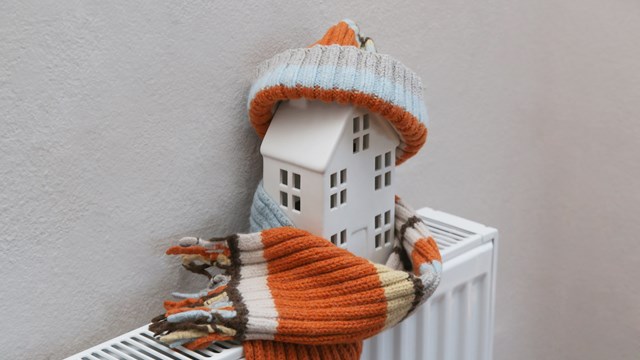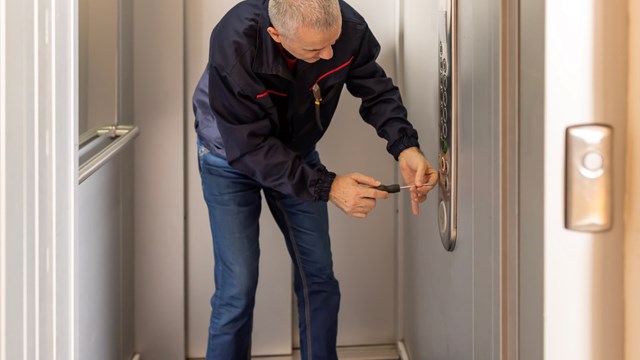Warranties for products are simple to understand, most people might think.
You go to the store, buy a computer or a DVD player or a TV, or even a larger appliance like a refrigerator, and you get a piece of paper describing a one-year or two-year warranty, and what’s covered. Sometimes, for some extra money, you can get an extended warranty for another year or so.
But what if the item in question is not a personal appliance, but a huge building component that you’re purchasing, at great expense, from a contractor? What if you’re purchasing, for your co-op or condo, a roof tank, pumps, a new roof, a new series of convectors for a central HVAC system, a boiler or an elevator?
More Complex
Surely, the technology in items like these is more complex than your laptop. Also, in addition to the manufacturer, there is usually now a third party—the contractor. Still, a warranty must be given. How do warranties work for such large items, and what do you, as a co-op or condo board member, committee member or manager, need to know?
Greg Laufersweiler, sales and marketing manager for Stanley Elevator Company in Merrimack, New Hampshire, says one difference between the warranties on small, personal items like the aforementioned laptop versus much bigger components like an elevator system is warranty service.
“An elevator requires, depending on its size and its use, regular maintenance visits to check door tension, leveling checks to make sure it’s leveling properly,” he says. “And those things require a physical visit by a service technician in order to accomplish that. A television set that you buy in a store or a laptop doesn’t need that. The word warranty by itself is pretty much the same, parts and labor. The warranty is generally a year on major components; however, if you want warranty service then that’s something else.”
“If something goes wrong with a smaller item, the customer can pack it up and send it back to the manufacturer and they’ll repair it and send it back to you,” says John J. Ambrosino, president of Total Temperature Control, a company that specializes in heating, cooling and plumbing installation and maintenance services in Wakefield, Massachusetts. “In the heating, air-conditioning and plumbing industry things aren’t done that way. The person who puts it in also provides an on-site warranty. Everything is professionally installed. So the warranty from the manufacturer is usually a one-year warranty plus one-year parts, minimum. Plus whatever warranties the manufacturer provides for the component.”
Installers and Manufacturers
How do the manufacturers’ warranties fit with installers’ coverage of their work when it comes to these types of items? It often depends on what type of item you’re talking about, and what manufacturer is involved.
“If we are an installer of the manufacturer’s product then we honor the manufacturer’s warranty as an authorized installer of the product,” explains Laufersweiler. “So if there is a warranty we’ll handle it for the customer and work out the exchange with the manufacturer so the customer doesn’t have to get involved. We buy the product from the manufacturer, we install it and if something goes wrong, we take care of it. If we find a bad component we’ll work it out with the manufacturer at no charge to the customer. But every installer is different and has different policies.
According to Ambrosino, installers usually provide a one-year warranty on labor. “The way we do it—and not everybody does it this way—but if we install a product we have a one-year warranty on parts and labor,” he says. “For installations of new products we’ll offer a three-year warranty for labor. A lot of manufacturers have as much as a ten-year warranty on materials.”
“For the installation of a new boiler, there could be as many as 100 steps involved so you’d have to first figure out if the problem lies with the product or the installer and take it from there,” says Hugh Kelleher, executive director of the Plumbing, Heating and Cooling Contractors Association of Greater Boston. “For example if you installed a new heating system and you went down in the boiler room and discovered there was a puddle of water, you’d be immediately concerned:
Where is this water coming from? If you saw it was coming from a pipe in the boiler room, obviously that would be the responsibility of the installer. If it were coming directly underneath the boiler, it might be coming from the unit itself. The first line of approach would always be to call your installer. Then go down and look at that piece of equipment with the property manager and have a discussion about what’s going on down there. Typically, for a plumber/contractor/HVAC person these things are pretty easy to identify. Installers are very good at troubleshooting. If the installer thinks it’s a malfunctioning piece of equipment they would them ask the manufacturer’s representative to come out to the building and meet with the installer and a representative from the building. These things will get worked out.”
Kelleher adds that in most cases installers and manufacturers have a good working relationship because manufacturers want to maintain good relations with their installers; after all, they are the path to future business.
Can one purchase extended warranties on building components? Yes—but they seem less popular than they do in the consumer electronics field.
“If there is an extended warranty available then I feel that I should offer it to my client. If I have an opportunity I’d probably include it, but not everybody feels that way about extended warranties,” says Ambrosino. “Or at the very least, I would put it down as a line item and recommend it.”
“The general advice is that extended warranties are not worth it for most products,” adds Kelleher. “If there is a real problem one year will demonstrate what that problem is. If there is a problem with the design or function of that system it will show up in that first year. Most equipment that’s manufactured and sold in our industry is pretty high quality. What I think is necessary is a maintenance contract. What people are doing much more commonly is that people are saying ‘look this is a good piece of equipment and we want to make it last, so let’s do a maintenance contract so we can keep an eye on everything and make sure it’s working.’ That is a wiser investment than an extended warranty.”
Negotiating With Boards and Managers
Unlike, say, when you buy a DVD player, buying a new boiler or convector system is a huge responsibility, and several people have to examine the particulars and then sign off on it.
Often, the contractor negotiates with the manager, and then the board of trustees approves the manager’s recommendation. “What usually happens is that the board makes the decision based on a recommendation from the property manager,” says Ambrosino. “Board members usually depend on the expertise of the property managers.”
On other occasions, however, the contractor negotiates with the board as well as the manager.
Clearly, every building or building complex is different. Some boards are very hands-on, while others leave everything to the manager. In some buildings, an engineer or architect hired by the co-op or condo also takes part in the business-making process.
There are even some boards that have trustees who are in the construction trade, and in these cases, contractors feel comfortable talking about warranties and other matters with those people.
Parts and Labor?
Finally, do most companies that manufacture building components and the contractors and dealers who sell them, offer parts-and-labor warranties, or only warranties on parts?
“Certain service contracts can include parts and labor,” says Kelleher. “It’s important to realize what is covered and what isn’t covered. That is usually the cause of a lot of confusion. The consumer has to beware. The biggest loser for a contractor is call backs. We hate call backs. Call backs are very good for actors but are very bad for manufacturers and contractors. It basically means that something is wrong and you get called back to the job. When a contractor is done they want to leave the job and get paid.”
Clearly, contractor- and dealer-offered warranties for major building components are a complicated subject. Thankfully, you as a co-op or condo board member or trustee have many resources to rely on: the experience of board members and managers of other developments, members of your own board who might be architects, engineers or construction professionals, co-op and condo trade organizations, and, of course, your manager.
Raanan Geberer is a freelance writer and a frequent contributor to New England Condominium. Staff Writer Christy Smith-Sloman contributed to this article.







Leave a Comment